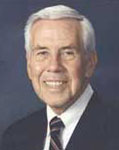Just as I finished the last post about the biodiesel essay contest for high school seniors in Minnesota, Bob Moffitt with the American Lung Association of the Upper Midwest let me know there’s also an essay contest for younger students in Iowa.


The Iowa Soybean Association and the American Lung Association in Iowa (part of the Upper Midwest division) is offering a biodiesel essay contest for sixth, seventh, and eighth graders:
”The essay contest is open to 6th, 7th, and 8th grade students in Iowa and focuses on how biodiesel affects human and environmental health,” said Jessica Zopf, contest manager. “All entries must be at least 200 words long and be received at the American Lung Association office in Des Moines no later than May 1, 2007.”
Everyone who submits an essay receives two collectable wristbands from the American Lung Association of Iowa and the Iowa Soybean Association. Three state winners in each grade get a $50 iTunes gift card.
Get your entry forms and information at CleanAirChoice.org… just click on the “Iowa Biodiesel Essay Contest” box. Entries can be mailed to: Jessica Zopf, American Lung Association of Iowa, 5601 Douglas Ave., Des Moines, Iowa 50310.
Good luck!




 The president talked about his goal of reducing America’s gasoline consumption by 20 percent over the next 10 years and how hybrid cars and flex-fuel vehicles can help achieve that goal.
The president talked about his goal of reducing America’s gasoline consumption by 20 percent over the next 10 years and how hybrid cars and flex-fuel vehicles can help achieve that goal. Denver-based
Denver-based  The City of Rome, Italy could convert all of its 2800 buses to biodiesel by the end of 2008.
The City of Rome, Italy could convert all of its 2800 buses to biodiesel by the end of 2008.  The CEO of Wisconsin’s
The CEO of Wisconsin’s  The US Department of Agriculture has awarded $6.2 million in grants to more than two dozen small businesses and community groups to develop innovative uses for woody biomass, including renewable energy and new products, from national forests.
The US Department of Agriculture has awarded $6.2 million in grants to more than two dozen small businesses and community groups to develop innovative uses for woody biomass, including renewable energy and new products, from national forests. Ethanol-enriched fuel was a clear winner at the 55th running of the 12 Hours of Sebring, the first time the renewable fuel was used in an endurance race format. The LMP2 class was won by Andretti Green Racing featuring the Acura ARX, while Corvette Racing took a first in the GT1 class. For the first time ever, both cars used a 10 percent ethanol-enriched blend.
Ethanol-enriched fuel was a clear winner at the 55th running of the 12 Hours of Sebring, the first time the renewable fuel was used in an endurance race format. The LMP2 class was won by Andretti Green Racing featuring the Acura ARX, while Corvette Racing took a first in the GT1 class. For the first time ever, both cars used a 10 percent ethanol-enriched blend. A newly created renewable energy center at IUPUI has been named after Indiana Senator Richard Lugar.
A newly created renewable energy center at IUPUI has been named after Indiana Senator Richard Lugar.